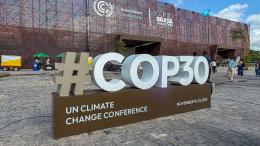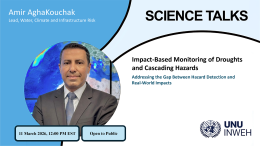Thirty years after the 1992 Earth Summit and a decade after the adoption of both the Paris Agreement and the Sustainable Development Goals (SDGs), global climate governance remains fragmented and under-resourced to confront escalating planetary crises.
Building on President Lula’s 2024 G20 call for the establishment of a UN Climate Change Council and COP30 President Ambassador André Corrêa do Lago’s appeal for a global mutirão—a collective effort to move beyond outdated bureaucratic models—this session will explore how global governance can be more coherent, inclusive, and implementation-driven.
Recognizing that climate governance is global, but climate implementation is local, the event will bridge discussions on international reform with practical experiences from cities on the frontlines of climate change.
Session overview
The session will open with a broader agenda-setting dialogue, informed by UNU-CPR’s collaboration with the COP30 Presidency on global climate governance reform. The Global Governance Innovation (GGI) Platform is a multi-year initiative at UNU-CPR that identifies innovative governance models and mechanisms that can inform the design of new multilateral institutions or inspire reforms to existing ones.
It will then feature findings from the Knowledge Series on African Urban Resilience—a collaboration between the Aqinile Partnership (AUC, UNDP, UN-Habitat, UNEP), GIZ, and UNU-EHS—which assessed resilience strategies across 50 African urban areas.
By showcasing how African cities are operationalizing comprehensive and participatory approaches that link socioeconomic development with climate adaptation, the session will identify critical enablers for strengthening local resilience and provide lessons for multilateral governance reform.
Key Questions
- How can multilateral climate governance reforms better support locally led adaptation and resilience?
- Which practices from African cities’ resilience strategies can be scaled or adapted to improve global governance frameworks?
- What institutional and policy innovations are needed to align global, national, and local climate action?
- How can emerging governance models integrate diverse sources of knowledge—technical, social, and Indigenous—to build more legitimate and effective systems?
Agenda
15:15 – 15:20 | Opening remarks and scene-setting — UNU-CPR
15:20 – 15:35 | Perspectives on reforming global climate governance — Igarapé Institute and Perry World House
15:35 – 15:50 | Assessing local climate implementation: Findings from the Knowledge Series on African Urban Resilience — UNU-EHS and AUC
15:50 – 16:15 | Moderated discussion and audience Q&A






